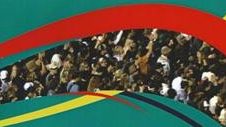Abstract
The present paper includes an analysis of the journalistic discourse ethics in the publication Charlie Hebdo, in the light of morals’ defying and its consequences on the public. Though the limits of the freedom of expression are provided in the legal norms and morals, we identify in the journalistic discourse numerous deviations from these principles, insults, as well as ethnical, religious or gender discrimination. [1]On the other hand, the satirical discourse is a social criticism and its purpose is not to make users laugh, but to warn or beckon on crises, like terrorist attacks. Though users know they read a publication of opinion which uses satire through cartoons and which has a certain political and religious ideology, we notice that their reactions in the virtual media are important, as long as there are thousands or dozens of thousands of appreciations, shares and comments for one post.
Keywords: ethical principles, freedom, discrimination, insult, media discourse, efficiency, studium/ punctum, illocutionary/perlocutionary act.
[1] Freedom of expression may not harm the dignity, honour, and privacy of person, or the right to their own image . Freedom of expression has its limits and it is subdued to conditions, restrictions or sanctions provided by legislation, measures necessary in a democratic society. (see Human Rights Act, art. 10).
